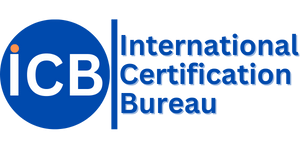In order for a product to attain Vegan Certification, it must refrain from containing meat, fish, fowl, animal by-products, eggs or egg products, milk or milk derivatives, honey or honey bee products, insects or insect-derived items such as silk or dyes, or sugar processed with bone char or any animal-related ingredients during processing.
OUR PROCESS
Sweeteners must not undergo filtration or processing with bone char.
Prebiotics and probiotics must be cultured on or with a medium devoid of animal products or by-products.
Liquids like beer, wine, maple syrup, and fruit juices may not undergo filtration, defoaming, or clarification with animal products.
Products must not undergo animal testing of ingredients or final products by any party, whether supplier, producer, manufacturer, or independent, for any form of research, including environmental safety, feed or nutrition trials, toxicity testing, or tests “as required by law,” encompassing third-party testing, and must not be subject to future testing.
Products may not contain any animal-derived GMOs or genes utilized in manufacturing ingredients or final products.
Additionally, companies must submit and obtain approval from the Vegan Awareness Foundation, demonstrating adequate measures for thorough cleaning and sanitization of all surfaces, vessels, utensils, and equipment used between vegan and non-vegan production cycles to minimize cross-contamination in cases of shared machinery.
Introduction to the Standard
Beagles, beloved dogs, have been historically utilized in laboratory experiments. Cosmetic ingredients have been frequently tested on this species in the past.
Vegan certification underscores your cosmetic brand’s commitment to animal welfare, enabling you to convey broader ethical and value-based messages to consumers.
Among other criteria, a vegan-certified cosmetic product is defined by its exclusion of animal ingredients or by-products, avoidance of animal ingredients or by-products in the manufacturing process, and absence of animal testing by any entity or contractor.
As a reminder, the European Cosmetics Regulation EC No 1223/2009 prohibited animal testing on cosmetic products in 2004 and on cosmetic ingredients in 2009 and 2013 (Article 18). Claims such as “cruelty-free” are illegal in the EU, as per the Common Criteria in EU No 655/2013. However, the claim “vegan” remains viable, as it encompasses non-animal testing among other requirements.
Originating in the food industry, veganism eschews the consumption or use of animal products, aligning with the ethos of minimizing animal exploitation and cruelty. A vegan-certified cosmetic formula prohibits any animal-derived substances, signaling the cosmetics company’s dedication to animal welfare.
Given the prevalence of animal-based ingredients in cosmetics and the continued allowance of animal testing in many regions, this certification holds significant importance for cosmetics brands.
Some examples of animal-derived ingredients in everyday cosmetics include:
- Carmine (CI 75740), a pigment derived from crushed cochineal, often found in lipsticks and blushes.
- Beehive products like honey, propolis, and beeswax, commonly present in lip products.
- Milk derivatives like donkey milk, found in certain skincare items.
- Lanolin sourced from sheep’s wool, often used in creams and balms and not prohibited by organic labels.
- Collagen, glycerin, squalane, and keratin from animal proteins, although plant-based alternatives exist.
Vegan Certification Criteria
BIORIUS adheres to The Vegan Society’s standards for Vegan certification.
To attain certification as “vegan,” a product must satisfy the following four criteria:
- Absence of animal ingredients or derivatives.
- No animal testing of ingredients or final product.
- No genetically-modified organisms involving animal genes or animal-derived substances.
- Adherence to kitchen and hygiene standards.
Certain cosmetic ingredients may pose challenges, necessitating thorough reviews. BIORIUS conducts investigations with diligence and transparency when questions arise.
